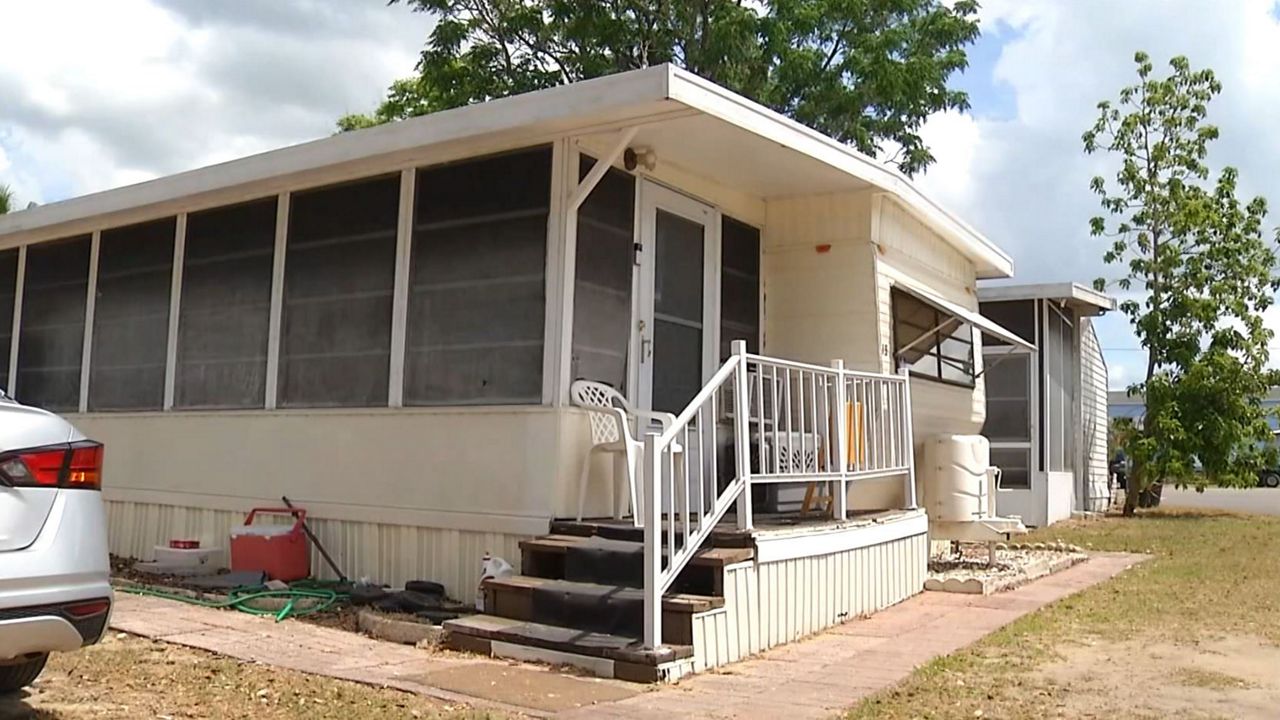SANFORD, Fla. — Michelle Lynn and her family didn’t expect to be living in a hotel this Christmas season. And they definitely didn’t expect to suddenly have to pay more than twice their usual daily room rate, after a new manager recently took over at WoodSpring Suites in Sanford.
What You Need To Know
- Families and other residents at WoodSpring Suites in Sanford say their daily rates more than doubled under new management
- Management, though, says the former manager was breaking company policy by not charging the full daily rate from the start
- Residents estimate that 25-40 people have left since the rate increase, management says the number is less than that
“We honestly don’t know what we’re gonna do,” Lynn said on Dec. 10. That was two days after she said a new manager started requiring her to pay more than double the daily rate she’d previously been paying for her family’s two-bedroom suite.
Several hotel guests who spoke with Spectrum News 13 said the previous manager had been working with them, allowing them to pay lower rates. In Lynn’s case, she had only been paying $39.19 a day, instead of $83.99.
“He was definitely trying to help us,” Lynn said. “We did not ask for any type of discount.”
Lynn said she thinks the manager empathized with her after she shared some information with him about the family’s former living situation. Lynn said mold had been a major issue at the Melbourne apartment where she previously lived with her husband and their two children, ages 3 and 12.
Another WoodSpring Suites guest, Yolanda Roberts, has lived at the hotel for the last few months with her 82-year-old mother, who has only one leg.
Roberts also said the former manager had been offering her a discounted daily rate, based on how long she’d been at the hotel. But on Dec. 8, that discounted rate suddenly was no more.
“They could have given us a heads up,” Roberts said. “You shouldn’t tell us the day of.”
But legally in Florida, hotels aren’t seen as permanent residences, and hotel residents aren’t seen as tenants, even at extended-stay hotels like WoodSpring Suites. In fact, the Florida Statutes actually exclude hotels from the section of law governing landlord-tenant relations. That means unlike landlords, hotels don’t have to notify guests in advance of any changes to agreement terms – including room rates.
For their part, property managers said the former onsite manager had been going against company policy when he allowed multiple guests to pay lower prices for their rooms.
“There were no rate increases,” said Joe Mailes, director of risk management for Hotel Management Services, Inc., the hotel’s property manager.
“It was determined when reviewing in-house guests that guests weren't paying properly to the terms of their agreement," he said. "[Guests] were notified of that, and they were told what the prevailing rates were, and they were given the choice to either extend or check out."
But for Lynn, Roberts and other low-income families, that “choice” isn’t much of a choice at all. Both Lynn and Roberts said they pay by the day because they can’t afford to prepay the hotel’s weekly or monthly rates, which would lower the per-night cost of the room.
“I just think it’s really wrong and unfair that they did this to many people,” Lynn said.
Once guests learned they would have to pay more than before, “everybody started packing and leaving,” Roberts said. She and multiple other guests estimated that between 25-40 people have had to leave the hotel as a result of the higher prices. Mailes disputes that claim, saying a minimal number of residents were affected.
Although hotels are separate from residential rental properties under Florida law, there are instances when a hotel guest may legally establish themself as a tenant, rather than a “transient occupant.” The Florida Bar Association has some guidance on ways hotel guests may successfully establish tenancy – for example, by receiving mail at the hotel, or using the property address as their own on a driver’s license or other governmental record.
Still, as public lodging establishments, hotels are not included in the section of Florida law governing residential tenancies. So unhappy hotel guests don’t have much legal recourse, until a hotel agrees to consider them a tenant – or a judge decides that they have to.
“The court and the hotel essentially view it like this – the person can simply move to get out of the conditions,” Jamos “Jay” Mobley, a housing and consumer attorney with the Legal Aid Society of the Orange County Bar Association, wrote in an email to Spectrum News 13.
But for people like Roberts, moving out is just not that simple.
“I got a mom,” Roberts said. “She’s 82 years old with one leg. Where are we gonna transport her, if we have to leave here?”
Molly Duerig is a Report for America corps member who is covering Affordable Housing for Spectrum News 13. Report for America is a nonprofit national service program that places journalists in local newsrooms to report on undercovered issues.








